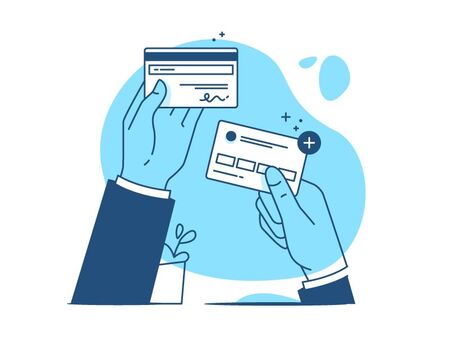|
Credit bureaus are well known for tracking consumers’ credit history, including tabulating such details as whether they pay their bills on time and how much debt they carry. But the bureaus also maintain a lot of other personal information about consumers. For example. consumers’ salary information can be up for grabs. Equifax, one of the three national credit bureaus, maintains a private database of salary records on more than 33% of U.S. adults — this information was acquired when Equifax purchased a data-mining company in 2007. Equifax can sell this data to eligible lenders, including mortgage and car finance companies, that are trying to gauge a consumer’s ability to repay a loan. Equifax, says the company provides salary information only when permissible under the Fair Credit Reporting Act. 1. Selling consumer data is a primary revenue source for the credit bureau industry. Each of the three major credit bureaus, Equifax, Experian and TransUnion, maintains more than 200 million files on consumers, tracking about 63% of the U.S. population. And the bureaus selectively sell that information to lenders and other companies, including insurers and debt collectors. That’s largely how credit card solicitations end up in consumers’ mailboxes. Card issuers pay credit bureaus for the contact information of individuals who meet specific criteria, like a certain minimum credit score. Similarly, mortgage lenders pay bureaus for a list of consumers within a specific credit score bracket and mortgage balance so that they can contact them with refinancing offers. Lenders also pay the bureaus for updates on existing customers: Some card issuers will pull credit scores on their cardholders to determine if they’ve become riskier. They can use a lower credit score as a basis for cutting a customer’s credit line or increasing their interest rate on new purchases. To be sure, the Fair Credit Reporting Act states that credit bureaus can provide consumers’ information to companies that plan to make a firm offer of credit. In some cases, consumers can benefit from this dissemination, because they stand to receive loan offers that are less expensive than what they may currently have. Individuals who’d like to avoid solicitations can remove their name from the lists that credit bureaus sell by visiting OptOutPrescreen.com. Ironically part is that the credit bureaus even make money selling their consumer information back to consumers. 2. What Credit Bureaus know could cost you a new job. Blemishes on a credit report don’t just make it tougher to get a loan — they can also make it more difficult to get a job. Federal law permits employers to pull job applicants’ credit reports and to use the information within them as grounds for not hiring someone. In fact, roughly 47% of employers say they pull credit reports on some or all job applicants. The assumption is that a bad credit report might indicate poor work habits and decision- making. Companies must get permission from applicants in writing to check their credit reports. 3. When errors appear in a credit report, impact on the borrower can be severe. Negative information, like missed payments or a foreclosure, can send the borrower’s credit score into a tailspin. That, in turn, will make it harder to get approved for credit. It can also increase the chances of ending up with higher interest rates on loans, and make it even tougher to rent an apartment or, again, get a job. A variety of mishaps can lead to errors — most of which consumers have no involvement in. That includes cases of identity theft. 4. Credit Bureaus sometimes match the wrong information to a consumer's report. When consumers order their credit reports, they have to provide their full name, Social Security number, date of birth and address. But credit bureaus often use fewer pieces of information to match account activity — like a report from a lender that a person has applied for a new line of credit. If the erroneously applied information in the credit report is negative, of course, that will result in a lower credit score for the person whose actual name is on that file. It’s one of the worst types of errors that can occur. Magnuson says the credit bureaus are careful in matching data. He adds that a 100% match wouldn’t solve such concerns and says it would force bureaus to omit account activity from credit reports whenever there’s a small mistake in, say, the last two digits of a Social Security number, even if most of the identifying information is correct. In summary, its a great idea to check your credit report regularly by using resources like creditkarma.com or annualcreditreport.com. When you review your credit report, you can ensure all the information is accurate and that you know what you owe and who you owe.
0 Comments
|
Archives
February 2022
Categories
All
Help with Debt?Need help with your credit card debt? Talk to certified credit counselor today call 844-872-9046
|
Accredited Non-Profit Credit Counseling Agency
23868 Hawthorne, Suite 201 Torrance, CA 90505
23868 Hawthorne, Suite 201 Torrance, CA 90505



